
These speckled green and red tubers are a bit smaller than the others, but their cuteness makes up for it. more->
We spent 13 years building an abundant fruit forest, annual veggie beds, perennial medicinal herbs, and a healthy mixed hardwood-coniferous forest and now we've sold our property to the next stewards so that we can begin a new homesteading project in Vermont closer to our best friends and their kids.
Don't worry - we plan to keep this website up and running so that our customers can reference what we've written about our plants!
We'll let you know once we re-start a farm in Vermont!

These speckled green and red tubers are a bit smaller than the others, but their cuteness makes up for it. more->
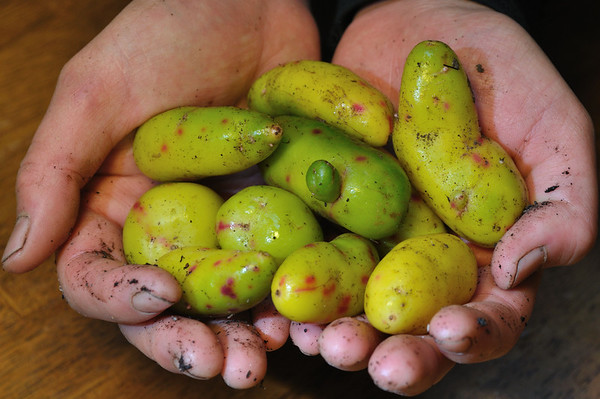
The little red polka dots on the yellow-green tubers of this variety certainly do look like roses in the pasture! more->

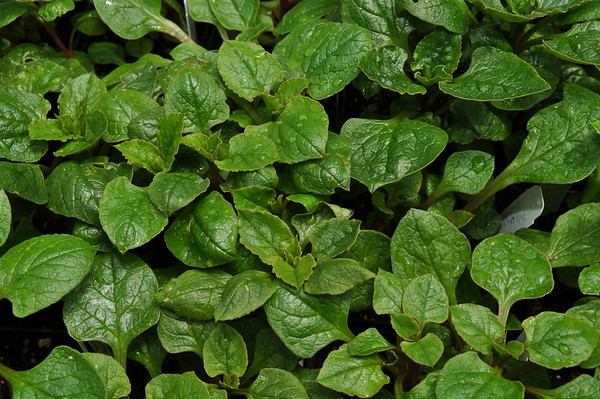
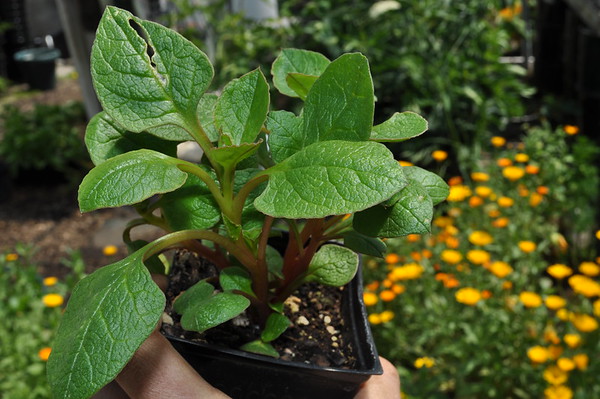
With violet colored tubers, peach colored stems, and really fast leaf growth, this variety is not only eye-catching but also produces loads of fresh spinach-like leaves for us week after week. more->
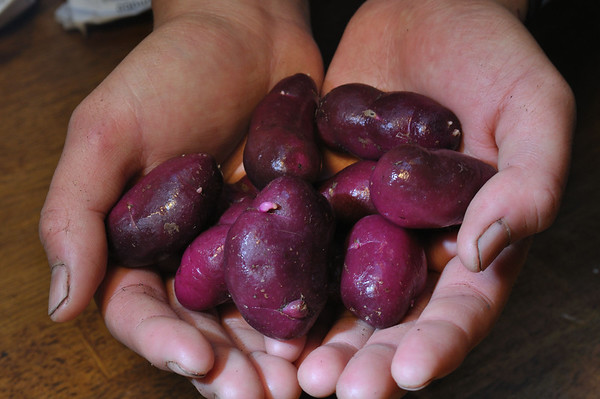
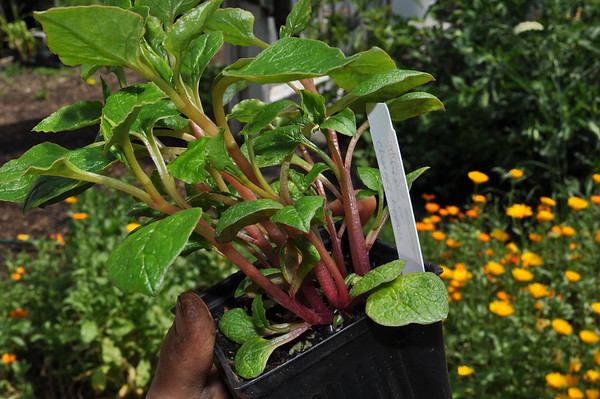
In addition to the strikingly deep purple tubers, this variety produces beautiful pink-purple stems with lots of vigorous growth. more->

The name of this variety translates to little bites of gold, which is quite fitting for such creamy yellow-green tubers that make a really nice autumn snack! more->
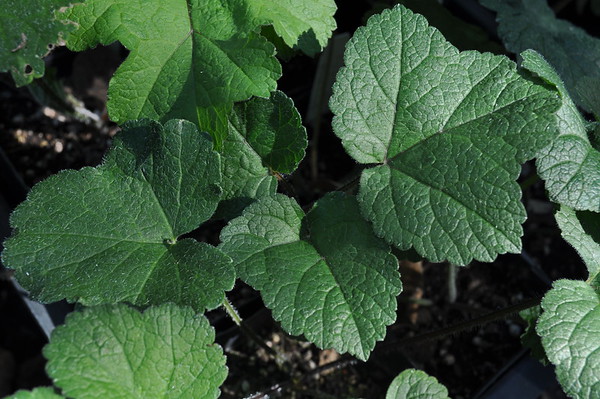
Also known as du huo in Traditional Chinese Medicine, and shishiudo in Japanese medicine, this angelica species is native to just the eastern part of Asia in those two countries... more->
Also known as Bai Zhi in Traditional Chinese Medicine, this angelica species is native to northeastern Asia in Russia, China, Korea, Japan, and Taiwan. This is the first year we've grown... more->
This pink-flowered variety was developed in Canada to have superb mildew resistance, which can turn the tops of other varieties white and sickly in extra wet weather. more->
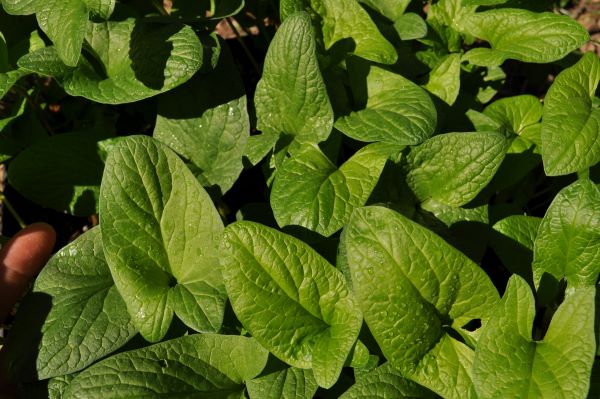
Good King Henry is a perennial vegetable closely related to spinach that produces delicious green shoots in early spring and succulent leaves in late spring and summer. In a partly shady location... more->

Ostrich fern makes the best edible spring fiddleheads of any fern around. I like to brush off the papery scales, add salt, and steam them lightly to bring out the asparagus-like flavor. Though... more->

This variety of hardy tea comes from the Sochi region of Russia near the Black Sea. more->
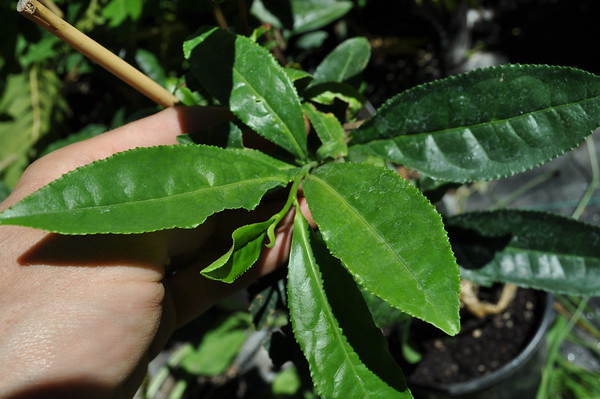
This hardy variety of tea comes from the mountains of the Boseong region in South Korea. more->
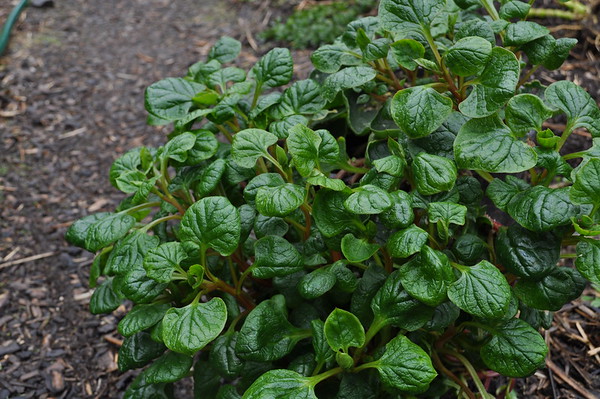
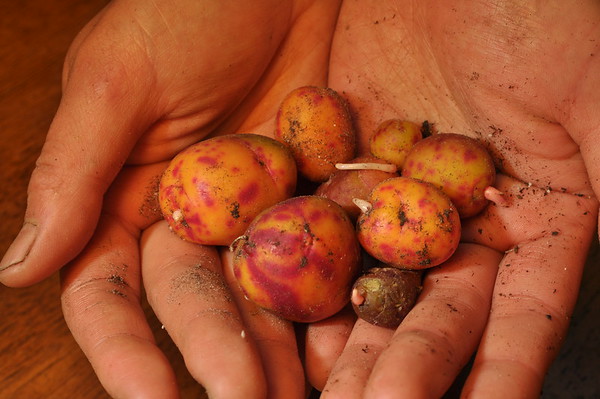
This variety of ulluco is one of the most common and productive in our climate. The pink and yellow tubers might have a bit of green, which makes them just so cute with all three colors! more->
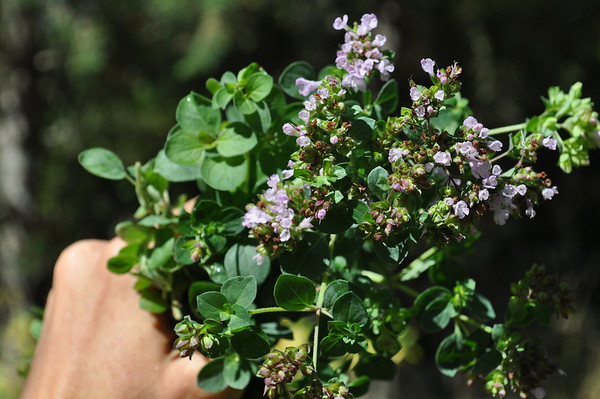
This dark purple-green oregano is native to Tajikistan and Uzbekistan, and stands out as a very unique variety of culinary oregano. Compared to Greek or Italian oregano, the flavor is more mild... more->
Soaproot is native to sunny meadows and oak woodlands of northern California and southwestern Oregon. Like other plants in the agave family, it grows strap-shaped leaves in a basal rosette, then... more->
Skirret is an old word for sugar-root. The white roots are very sweet and have a bit of carrot flavor, which is no surprise because skirret is in the same family. The roots are perennial, but... more->
Henderson's checkermallow is commonly found along the Washington coast, but a few populations grow further south here along the Oregon coast. In the hollyhock family, this perennial grows up to... more->
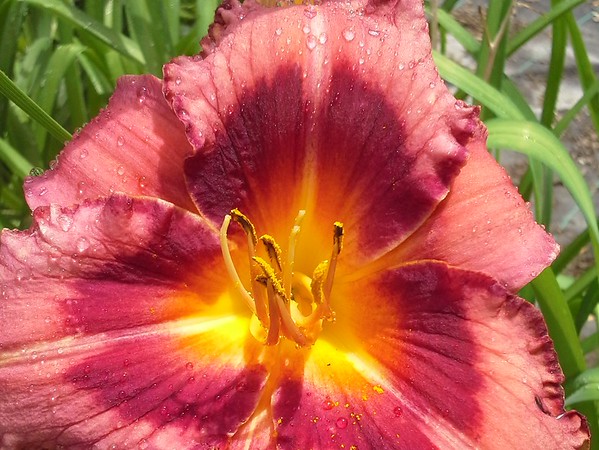
This multicolored red variety of daylily really stands out against a green backdrop! more->
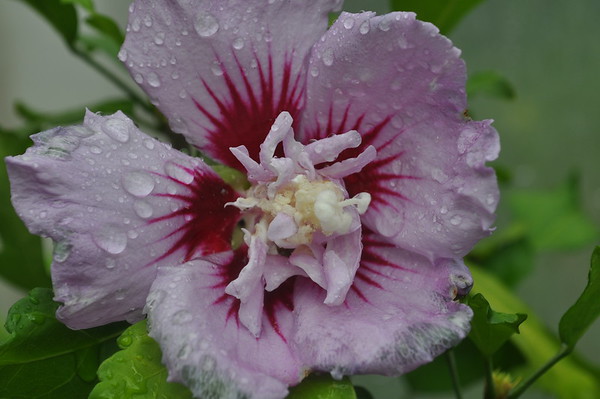
Arden's Double Purple has a frilly flower with multiple layers of purple-pink petals. more->
We have both Scandinavian and Russian cultivars of this alpine astringent and tonic herb. Accustomed to sunny, well-drained, high-elevation rocky meadows, we've been able to grow this plant in... more->

It sure is hard to beat the savory flavor of garlic chives! While most garden chives bear pink flowers in summer, garlic chives produce a more open cluster of white blooms. The bulbs and leaves... more->
We depend on the spicy and bright salad greens from this perennial arugula in early spring when most other salad greens are still struggling with cold and wet weather. Plus, when the majority of... more->
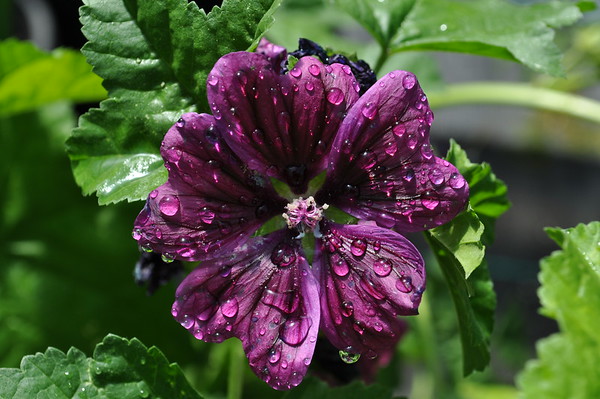
Although annual mallows can make nice greens, this perennial mallow not only has delicious leaves but it also makes large displays of showy purple edible flowers! One type has lavender petals... more->
This oregano variety has spicy flavor, slightly fuzzy leaves, and a upright, spreading habit. While our compact and golden oreganos have very mild flavor, this Italian variety will perk up any... more->
If I were stranded with only one plant to choose for my garden, broad-leaved plantain would be my top choice. The whole plant is completely edible, raw and cooked. I've used it to help heal... more->
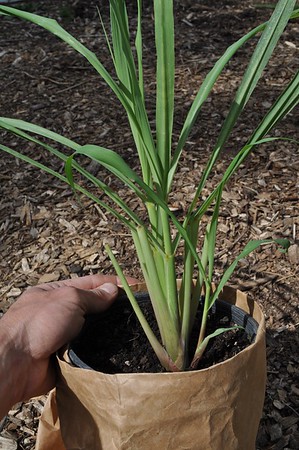
We really enjoy making lemony tea and flavorful Thai recipes with this aromatic herb. Fresh lemon grass is far superior to the faded bundles you find in the grocery store! Lemon grass is not... more->

This traditional Andean perennial vegetable produces red and white tubers the size of cherries. We harvest the tubers in fall after the first frosts make them sweeter. Steamed, baked, or fried,... more->
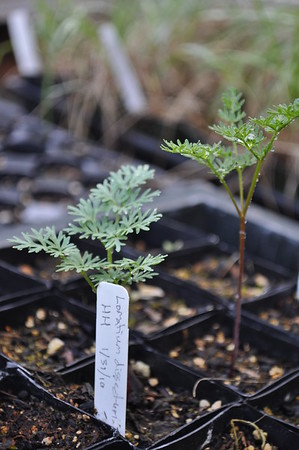
Native to well-drained hillsides in the Willamette Valley and the greater Pacific Northwest, this handsome perennial is the subject of an explosion of research for use as an antibacterial and... more->

This succulent perennial with pale yellow umbellate flowers is native to rocky coastal cliffs in western Europe. The edible leaves and flowers have a slightly spicy taste, and hold up well when... more->
A multi-functional tree native to Europe, linden has edible leaves and flowers. Bees adore the blooms which make a great tea, and from bees, a delicious honey. The wood is also known as basswood... more->

No kitchen garden can be without this flavorful and perennial member of the onion family! The 'Purly' variety makes longer and straighter hollow leaves than most. It produces edible magenta... more->
Yacón produces sweet, juicy tubers the size and shape of sweet potatoes. The stems grow up to 6 or 8 feet tall and bear yellow sunflower-type flowers. The stems and leaves are sensitive to frost... more->
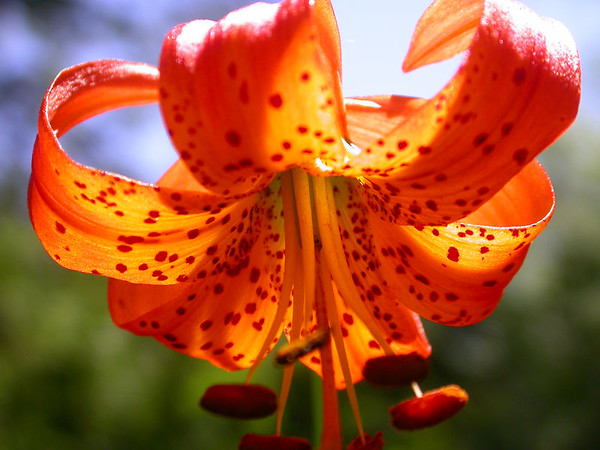
Leopard lily is a stunning wildflower native to parts of Oregon and California. It is an herbaceous perennial growing up to 6 feet tall with multiple stalks of multiple bright red and orange... more->
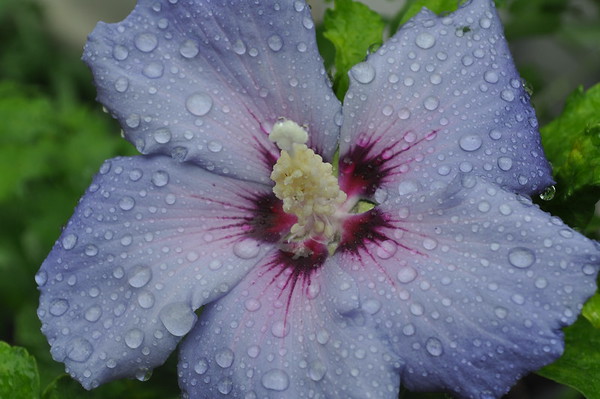
'Blue Bird' has bright blue flowers, and is a bit smaller and less vigorous than other varieties. more->
Because the fruits on 'Illinois Everbearing' ripen over a period of a few months, not all at once, its is nice to have a shorter plants for harvesting them often. The fruit is dark purple and has... more->
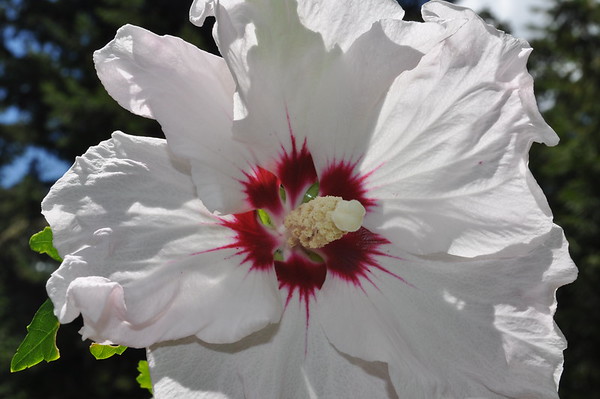
'Red Heart' has a white bloom with a red center and grows very vigorously in our climate. I've seen shrubs over 6 feet tall. more->
One of the most popular upright rosemary varieties, Tuscan Blue has a blue-green hint to its foliage, and blue-purple flowers.
The Latin name Rosmarinus refers to the dew (ros) of the sea (... more->
This variety of culinary sage bears extra large pink flowers on taller stalks than the common seed-grown sage. Although some ornamental sages have been bred so that they are no longer flavorful,... more->
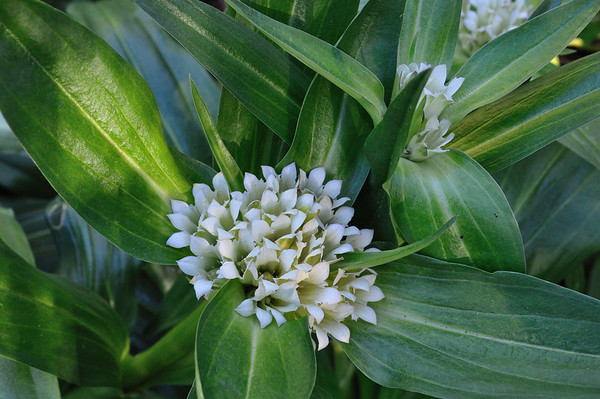
Native to the hills of western China and Tibet, this medicinal perennial likes rich, moist soil and sun. In mid-summer, it grows up to 2 feet tall with showy white blossoms. While so many... more->
This aromatic and savory variety of oregano is native to the Middle East where it grows in abundance on the rocky hillsides. It's leaves are covered in fine grey hairs that help it conserve water... more->
Ramps are a wild onion native to the eastern US and Canada. They grow in the thick duff of the dappled shade in the understory of somehat open forest canopies. Ramps appreciate the moist summers... more->

We love this late spring blooming native wildflower that we often find on the edges of meadows. In the hollyhock family, this perennial grows only about a foot to two feet tall at most. It sends... more->

This is the orange flowered variety of daylily. So pretty in the garden or on a plate! more->

This low-growing oregano has beautiful golden leaves and a nice aromatic flavor for cooking. It prefers full sun, and loses its color in part shade. more->
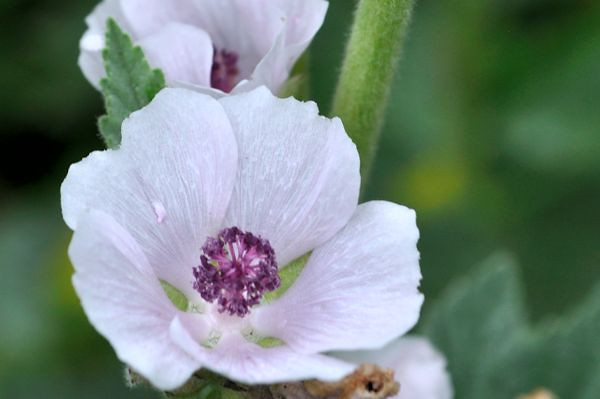
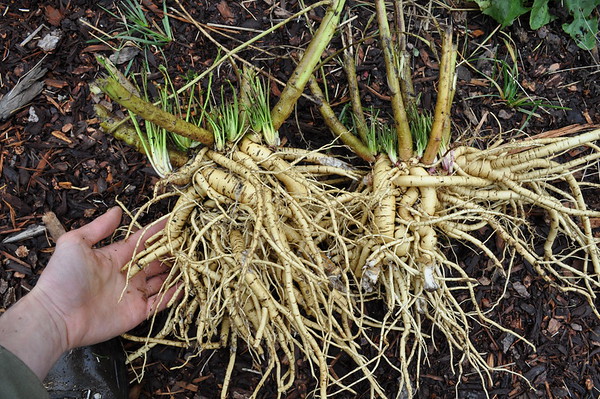
This perennial herb has soft leaves, beautiful hibiscus-like white and pink flowers, and provides a healing herbal medicine. Marshmallow roots are the original source of the slimy mucilage used... more->
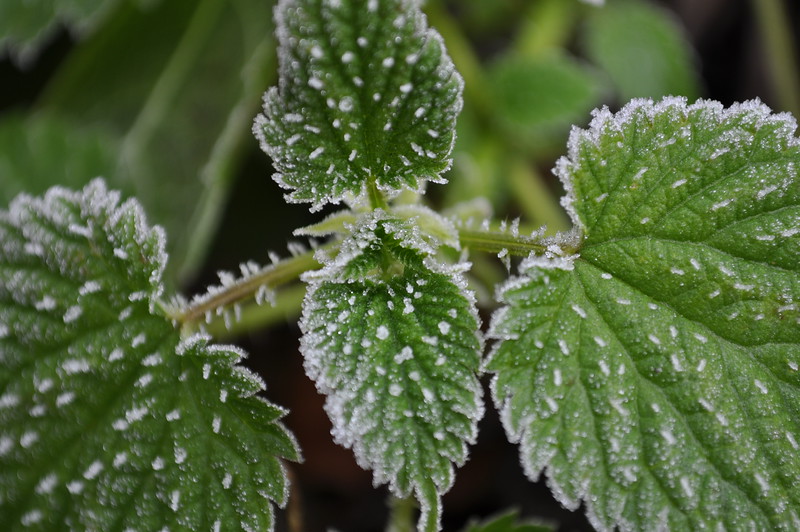
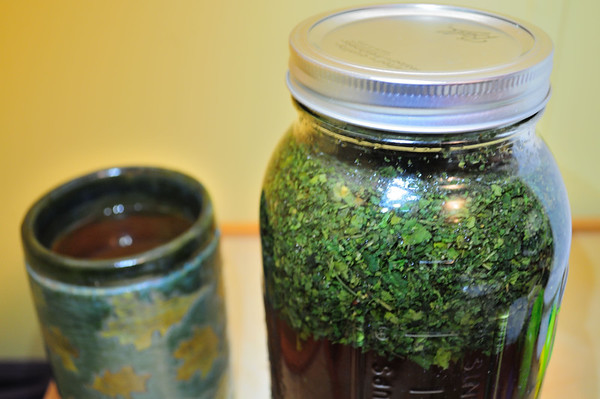
Stinging nettle is an herbaceous plant that grows in wet soil, often along river beds and stream sides. It spreads below ground by rhizomes but will not spread where it gets dry. Nettles are an... more->
Lovage is an excellent addition to a perennial vegetable garden. Bursting forth in spring, this plant can shoot up to six or seven feet tall each year. The aromatic leaves have a flavor similar to... more->
Kalitera means "the finest" in Greek, and this oregano lives up to its name. It has a smooth flavor like marjoram without the spicy bitterness found in seed-grown oregano. It grows upright on... more->